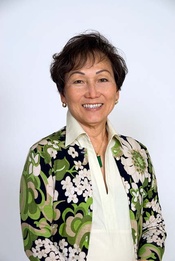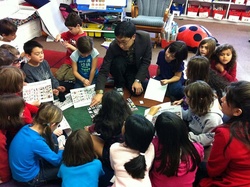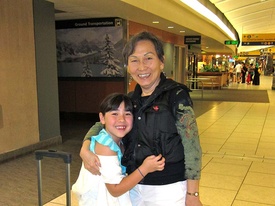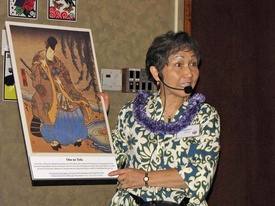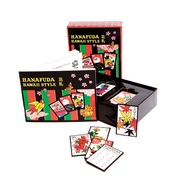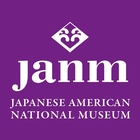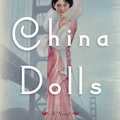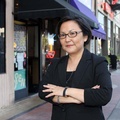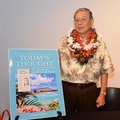One look at the website, HanafudaHawaii.com, makes it evident that Helen Nakano is an ambassador with a grand vision in mind. “The mission of Hanafuda Hawaii is to bring generations a little closer.” During plantation times, she explained, families throughout the islands played Hanafuda. Today, however, ways for the young and old to connect are far fewer.
Born in Honolulu, Hawaii of Issei parents from Hiroshima, Japan, Nakano has seen a great deal of the world. Married to a now retired Air Force colonel, she and their family of three children have lived in Japan, Thailand, the United Kingdom, as well as four different states—Hawaii, California, Arizona, and Alabama. She has a Bachelor’s Degree in Education and a Master’s Degree in Asian Studies. She taught in high schools in Hawaii and the Department of Defense system in Japan. Considering her life experiences, it is not surprising that her current business and life venture places her once more in the role of a teacher and allows her to share her Japanese culture with others.
Initially, Nakano wrote the Hanafuda how-to book as a gift for her then five-year-old granddaughter. When a cousin started selling the little book to her friends, Nakano came up with a business idea—to create a unique gift set by adding a set of cards to her instruction book. “When I first wrote the booklet for Arielle, I thought of Hanafuda just as a fun game I had played as a child. However, as I thought about why I would want to promote Hanafuda to a new generation at this period in my life, I realized that it could serve as a bridge to bring the generations together. I realized that this ancient Japanese card game could be a catalyst for bringing families closer.”
Without her knowledge, Jason, her youngest child and an artist and photographer by profession, decided to help her by redesigning every one of the 48 cards in the deck using the software Adobe Illustrator. With infinite patience, he drew each of the flowers with a stylus. Elaborate and intricate, the designs are based on his research of ancient drawings from China and Japan.
With Jason in the role of illustrator, mother and son collaborated to make decisions regarding the designs on each card. The cards they created included value points and symbols to help the young and the elderly players learn the game more easily.
Yet another challenge was to decide on which rules to include. Nakano tended to rely more on information garnered from local people who played the game whereas her son relied more on research. “We learned that rules differed slightly, depending on which island or which plantation camp and to which ethnic groups the players belonged. Because Hanafuda was played not only by Japanese immigrants, but also by Filipinos, Portuguese, Puerto Ricans, Chinese, Hawaiians, and even Caucasians, there were bound to be variations in the rules. We decided that if most of our sources played it a given way, that was the way we wrote it to be.” Nakano is quick to caution readers about fighting over minor differences in rules. “Just enjoy each other’s company, and most of all, have fun.”
Getting the Hanafuda Hawaii Style gift sets produced was only one challenge she faced. To revive interest in the game, she visited a number of senior and youth groups to teach the game. She promoted the benefits of playing Hanafuda to the old by citing a study made on age 90+ seniors. Hanafuda could provide the mental stimulation and social interaction the elderly need to keep alert and engaged. The young, on the other hand, Nakano claims, are constantly over-stimulated by the bombardment of the media and electronic games. They needed more face-to-face interaction with family.
Nakano has experienced the magical effects of the game firsthand within her own family. “My Caucasian son-in-law often initiates the game. Our granddaughter, now 8 years old, is always asking to partner with the person she thinks is the best player as she wants to be on the winning team!” In addition to the fun they have, playing Hanafuda also gives Nakano an opportunity to teach her granddaughter important values such as good sportsmanship, honesty, and compassion.
Through her contacts with diverse groups of Hanafuda players, Helen Nakano has been inspired and touched by her experiences. “I have been amazed that even elderly people with dementia remember playing Hanafuda. They cannot remember what they ate an hour earlier, but they remember the names of the flower cards and can still play simple games. Grown men grow misty-eyed when they tell me that their now deceased grandmother had taught them to play Hanafuda. They talk about those happy times in their childhood with great nostalgia.” Nakano is also grateful to a group of “sensei” that assist her at the workshops she conducts. Recruited from her relatives, high school and college friends, students, and neighbors, these Hanafuda Sensei have been instrumental in furthering the Hanafuda Hawaii mission.
Tireless in her dedication, Helen Nakano continues to plan ways to reach more children through intergenerational tournaments, as well as to find opportunities to teach Hanafuda to caregivers working in senior homes so that they can play with residents.
Even though she has already seen her audiences becoming younger and more ethnically diverse, there are no boundaries to her mission. Her latest Hanafuda workshop? At the time of this interview, Nakano reported, “My sensei and I will be teaching some French tourists from the city of Bruyeres. They’re here in Hawaii visiting their friends of the 442nd Regimental Combat Team. Wouldn’t it be grand if they started a Hanafuda Club back in France?” Oui, oui!
Purchase Helen’s Hanafuda Hawaii Style Card Set from the Japanese American National Museum >>
*Photos courtesy of Helen Nakano.
© 2011 Japanese American National Museum


